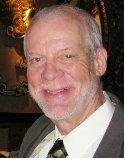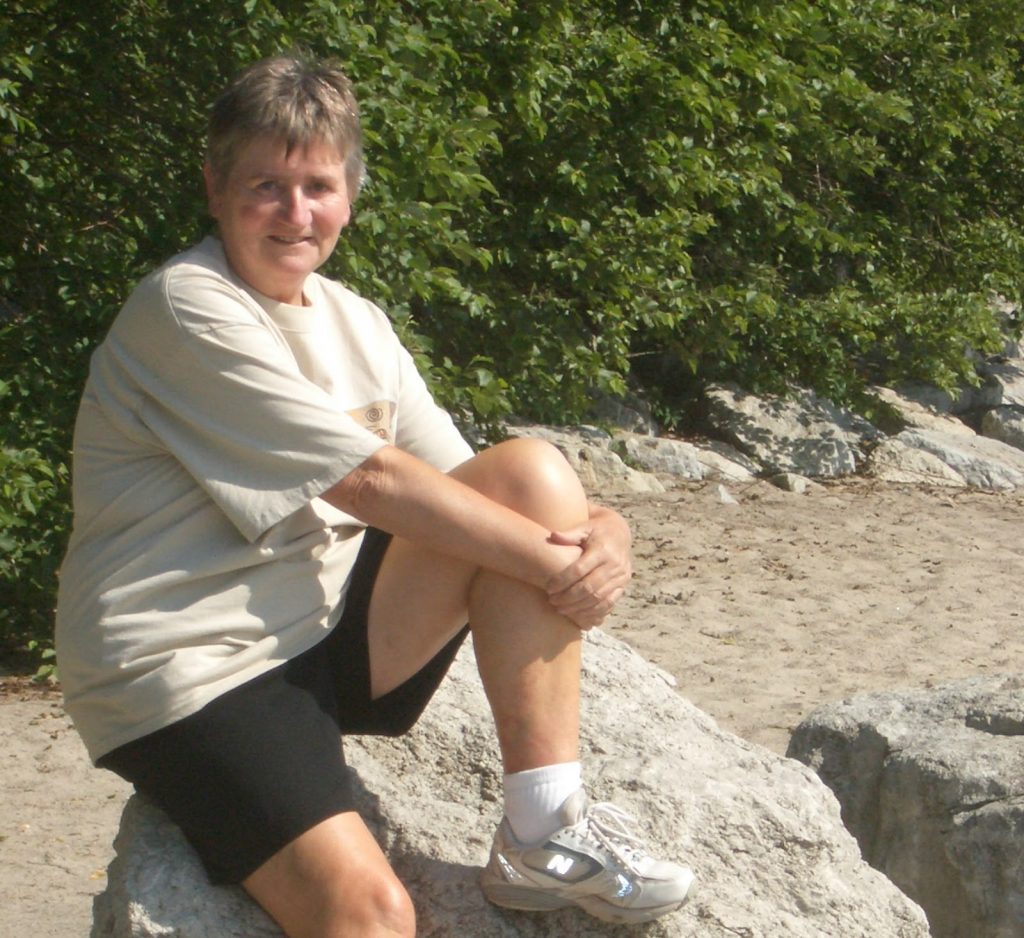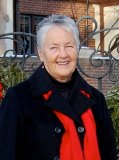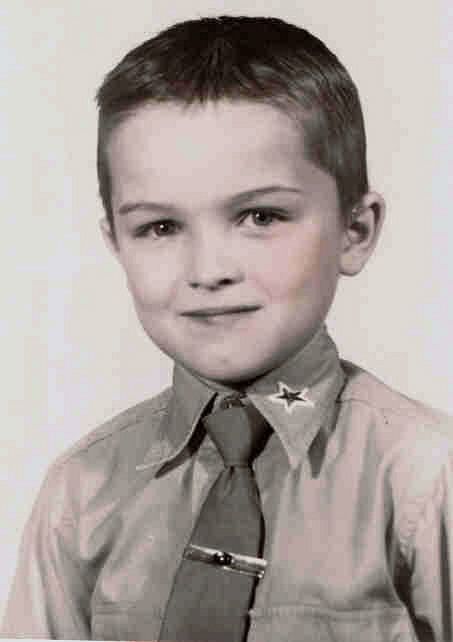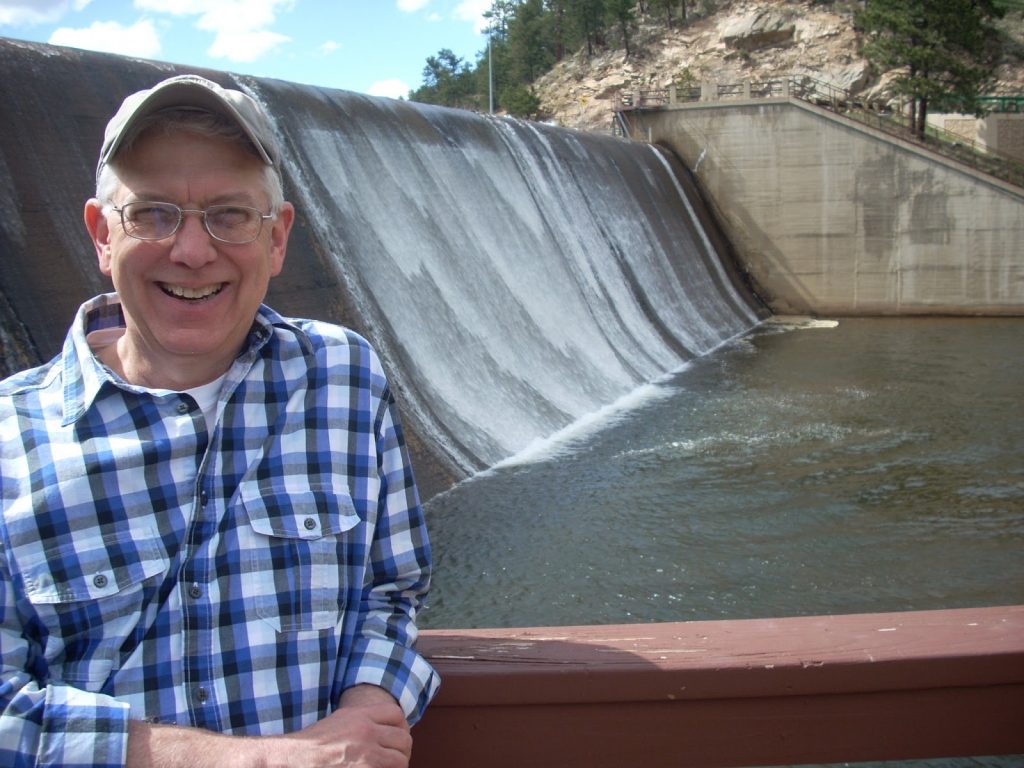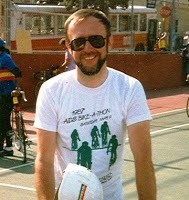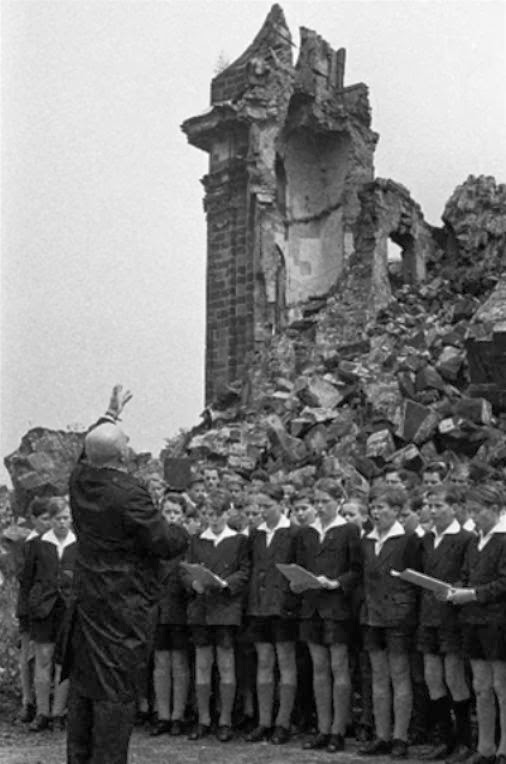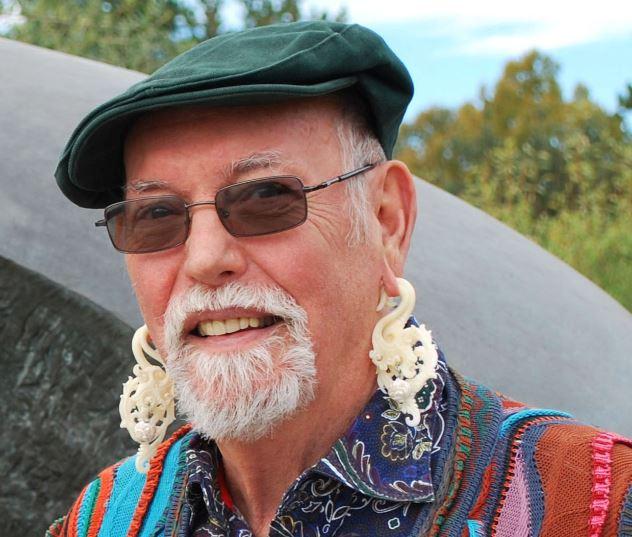The fire-bombing and destruction of Dresden happened close to seventy years ago, in another era, another country, with other people. In raising the subject, many people might respond by saying, “Why should we remember? Why should we care? That was a long time ago and has nothing to do with me or today.”
George Santayana is credited with saying, “Those who forget the past are doomed to repeat it.” And, “Only the dead have seen the end of war.”
By nature, I am a very empathetic person. Hate and violence perpetrated against others, present or past, disturbs me greatly. Also, I have a great appreciation for the good works of humanity; and when they wantonly are destroyed, that, too, concerns me.
Before World War II, Dresden, the capital of German state of Saxony, was known as “The Florence of the Elba” because of its extraordinary beauty. Elaborate Baroque stone architecture was expressed in its churches and cathedrals, its opera house and symphony hall, its university and museums, the choirboys school, its grand manor houses, and in its middle-class homes and shops. This peaceful city was built for living, not for war and destruction. There were no military facilities or industries in Dresden. For that reason, Dresden remained untouched until almost the very end of the war…almost.
In a statement by J.M. Spraight, Principal Secretary to the Air Ministry, he stated the following: “Charles Portal of the British Air Staff advocated that entire German cities and towns should be bombed. He claimed that this would quickly bring about the collapse of civilian morale in Germany. Air Marshall Arthur Harris agreed, and when he became head of R.A.F. Bomber Command in February 1942, he introduced a policy of area bombing where entire cities and towns were targeted. We began to bomb objectives on the German mainland before the Germans began to bomb objectives on the British mainland… Because we were doubtful about the psychological effect of…the truth that it was we who started the strategic bombing offensive, we have shrunk from giving our great decision of May 11th, 1940, the publicity it deserves.”
Ironically, an in-depth study after the war indicated that, had the Allies concentrated strictly upon military-related targets, the war could have been ended several months earlier, saved thousands of lives, and avoided the devastation of civilians’ towns and cities. Despite these facts, Harris was convinced that bombing civilian populations was the best way to win the war.
The bombing tactic developed by the Royal Air Force and the United States Army Air Corps was the creation of fire-storms. This was achieved by dropping incendiary bombs, filled with highly combustible chemicals such as magnesium, phosphorus or petroleum jelly (napalm), in clusters over a specific target. After the area caught fire, the air above the bombed area, became extremely hot and rose rapidly. Cold air then rushed in at ground level from the outside, and people were sucked into the fire. The Allies first tested this concept over the city of Hamburg. The resulting fire-storm created tornadoes of fire. Even the civilians who jumped into the river burned. Harris considered the test to have been a success.
By February, 1945, the war was almost over. The Allies were closing in from the west and the Russians from the east upon what remained of Germany. So far, the non-military city of Dresden was untouched.
It was at this point that Winston Churchill, the British Air Marshall (who became known as “Bomber Harris),” and his staff, decided that the Allies should make, shall we say, “a statement” by demonstrating their power to obliterate an entire, previously untouched city. It has been said that this decision so near to the end of the war was based partially upon revenge for bombing the British munitions-producing city of Coventry. Perhaps more importantly, it was to choose a previously undamaged city to demonstrate to Stalin and the Soviet armed forces, who rapidly were moving west across Germany, that the western contingent of the Allies was very powerful and could obliterate an entire city. The Soviet Union, therefore, would see the West’s determination to finish off Germany and also that the Russians should think twice about occupying lands too far to the west.
David Pedlow, in a letter to The Guardian (14th February, 2004), wrote about a rather revealing scenario supporting the fact that the bombing of Dresden was no militarily strategic objective. He stated, “My father was one of the…R.A.F. meteorological officers (who) finally sealed Dresden’s fate…The Dresden briefing was only one of many that he routinely attended, and even before the crews left the ground, he was troubled because of one notable omission from the routine.
Normally, crews were given a strategic aiming point – anything from a major factory in the middle of nowhere to a small but significant railway junction within a built-up area. The smaller the aiming point and the heavier the concentration of housing around it, the greater would be the civilian casualties; but given that the strike was at a strategic aiming point, those casualties could be justified. Only at the Dresden briefing, my father told me, were the crews given no strategic aiming point. They were simply told that anywhere within the built-up area of the city would serve.
He felt that Dresden and its civilian population had been the prime target of the raid and that its destruction and their deaths served no strategic purpose, even in the widest terms, that this was a significant departure from accepting civilian deaths as a regrettable but inevitable consequence of the bomber war, and that he had been complicit in what was, at best, a very dubious operation.”
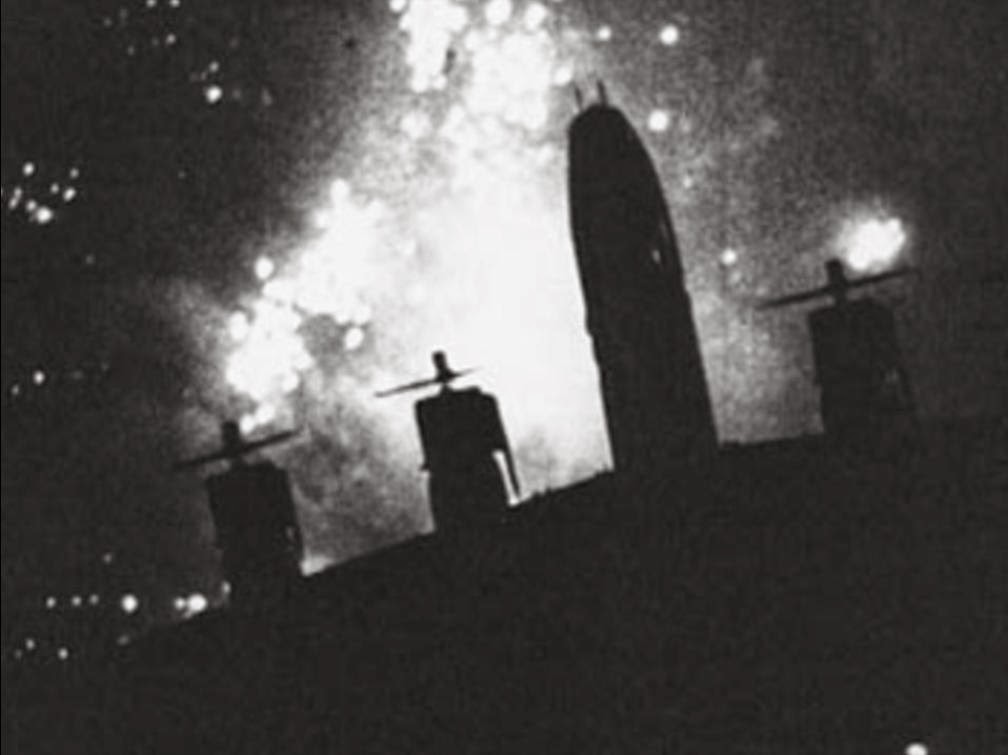
The British Royal Air Force, with the assistance of the United States Army Air Corps, chose to bomb the historic Dresden in six raids over three days and nights [13th, 14th, and 15th] during February, 1945. The four British raids over Dresden, followed by two American raids, consisted of 3,600 bombers and other planes, 650,000 incendiaries, plus over 6,000 tons of explosives. The high explosives and incendiaries resulted in a raging firestorm that sucked all the oxygen out of the city, suffocating the citizens hiding in basements. Those above ground were incinerated or crushed by falling buildings. The bombing completely destroyed seventeen square miles of the historic city and damaged many additional square miles surrounding the city center.
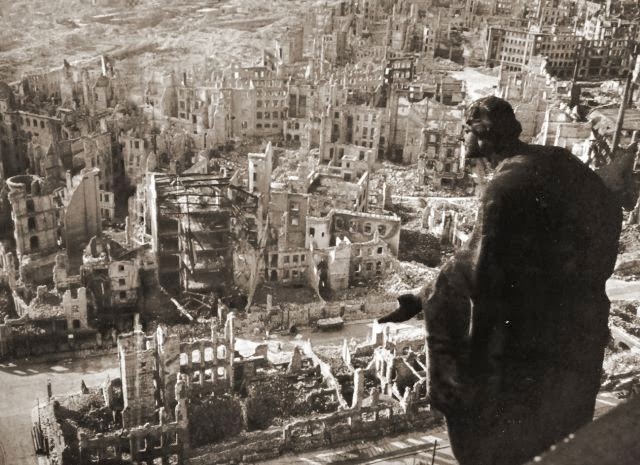
At first, apologists for the bombing claimed that the obliteration of Dresden was a “navigation error” – – over a three-day period. Later, some claimed that the bombing was necessary to take out military targets, although the only minor, war-related facilities were far from the city. Those facilities remained untouched by the bombing and are intact to this day. They also claimed that “only 50,000 civilians” were killed in the bombing and resulting firestorm; however, this figure ignores the fact that 300,000 refugees recently had fled to Dresden for safety, knowing that the city was a non-military location and that the war was almost over. More accurate estimates range far higher with additional tens of thousand of souls lost in the devastation. This included eleven of the church choirboys and their school.
Dozens of photographs were taken of the aftermath of the firebombing, many of them, such as mountains of dead being burned in the streets, too horrifying and gruesome to view without being emotionally shaken. The most poignant, haunting picture that I’ve seen is the charred remains of a nine-year-old, blond boy clinging to his dead mother.
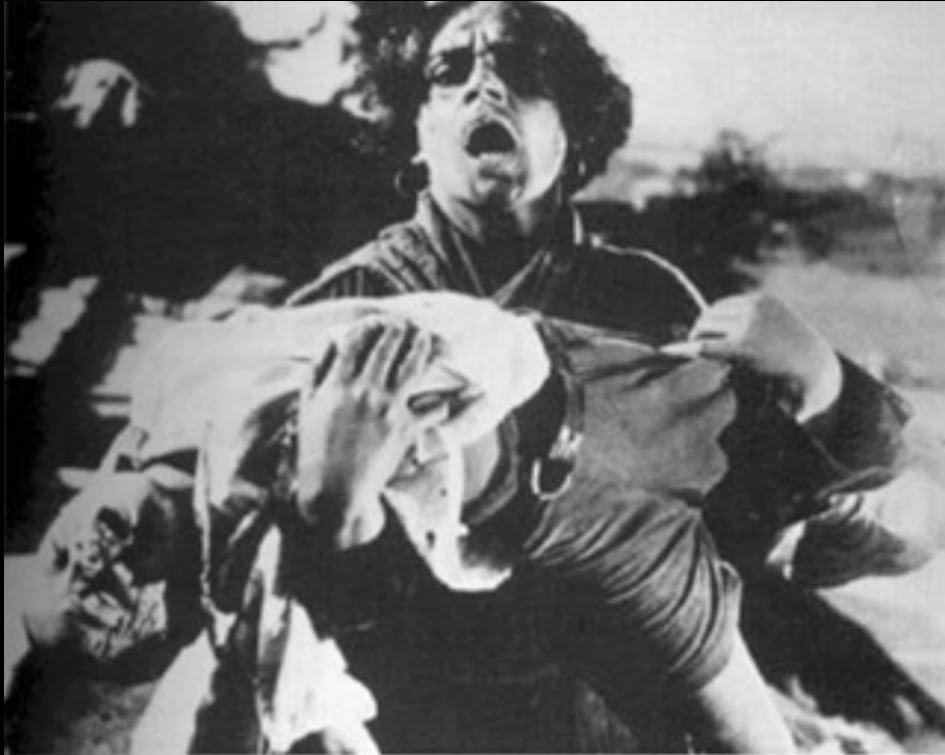
Ironically, there were American prisoners of war in outlying areas of Dresden at that time. Fortunately, some of them survived the bombardment by taking refuge in the basements of homes. My family had a friend who had been an American POW and survived the bombing in that manner. He mentioned that, by the end of the war, Germany had lost so many adult soldiers that mere boys had been assigned to guard them. Also held with him and the other soldiers was Kurt Vonnegut who, as a now-famous author, wrote about his Dresden experience in his 1969 book “Slaughterhouse Five.”
American soldiers were recruited to carry the dead to the burning grounds. Many were found seated in basements and shelters, dead from carbon monoxide and lack of oxygen. Many others were burned beyond recognition. Kurt Vonnegut later reported, “American prisoners, at first, were ordered to move thousands of bodies to pyres for burning (of which there are photographs); however, there were so many bodies that they were provided flame-throwers to burn the bodies just where they lay, turning them into ash and, therefore, no longer identifiable as human remains. Thousands of the dead likely were refugees and not listed on resident rolls, making almost impossible estimation of the final tally.”
Otto Sailer-Jackson was a keeper at Dresden Zoo on February 13th, 1945. He recalled being at the zoo when the bombing occurred. “The elephants gave spine-chilling screams. The baby cow elephant was lying in the narrow barrier-moat on her back, her legs up in the sky. She had suffered severe stomach injuries and could not move. A…cow-elephant had been flung clear across the barrier-moat and the fence by some terrific blast-wave, and stood there trembling. I had no choice but to leave these animals to their fate…We did what we had to do, but it broke my heart.”
The famous stone-domed cathedral Frauenkirche stood for just one day after the bombing; however, the heat from the fire-bombing was so great that it turned the stone porous. The cathedral collapsed the following day.
Because Dresden had no food and little shelter, our friend and the other Americans were marched north, out of the ruins of Dresden. Years later, our friend returned to Dresden and found the very same house in which a German lady had protected him. He knocked upon the door. An elderly lady answered, looked at him, and then broke into a broad smile. She remembered him.
In addition to the destruction of the city itself, great works of art and other prized creations made by human hands were destroyed. Also, sitting on a railroad siding was a whole train-load of valuable artwork that had been brought there for safe-keeping. The “Florence of the Elba” was no more.
After the war, Churchill began to back off from previous statements about the supposed necessity of bombing Dresden, whereas Harris continued to defend the decision. Suspicion concerning that decision grew even among the British public. Partially for that reason, Harris moved to South Africa and lived there from 1946 through 1953. No special medal was offered to the crews who flew the Dresden missions. Whereas a statue of the war-time supreme commander of the R.A.F. was erected soon after the war, no such statue of Harris was considered until several decades later.
Despite protests from Germany as well as some in Britain, the “Bomber Harris Trust” (an R.A.F. veterans’ organisation formed to defend the good name of their commander) erected a statue of him outside the R.A.F. Church of St. Clement Danes, London, in 1992. It was unveiled by Queen Elizabeth, The Queen Mother, who looked surprised when she was jeered by protesters, one of whom shouted, “Harris was a war criminal.” The line on the statue reads, “The Nation owes them all an immense debt.” The statue had to be kept under 24-hour guard for a period of months because it was often vandalised by protesters. Apparently, some people do remember, and they do care.
© 21 December, 2013
About
the Author
I have had a life-long fascination with people and their life stories. I also realize that, although my own life has not brought me particular fame or fortune, I too have had some noteworthy experiences and, at times, unusual ones. Since I joined this Story Time group, I have derived pleasure and satisfaction participating in the group. I do put some thought and effort into my stories, and I hope that you find them interesting.

